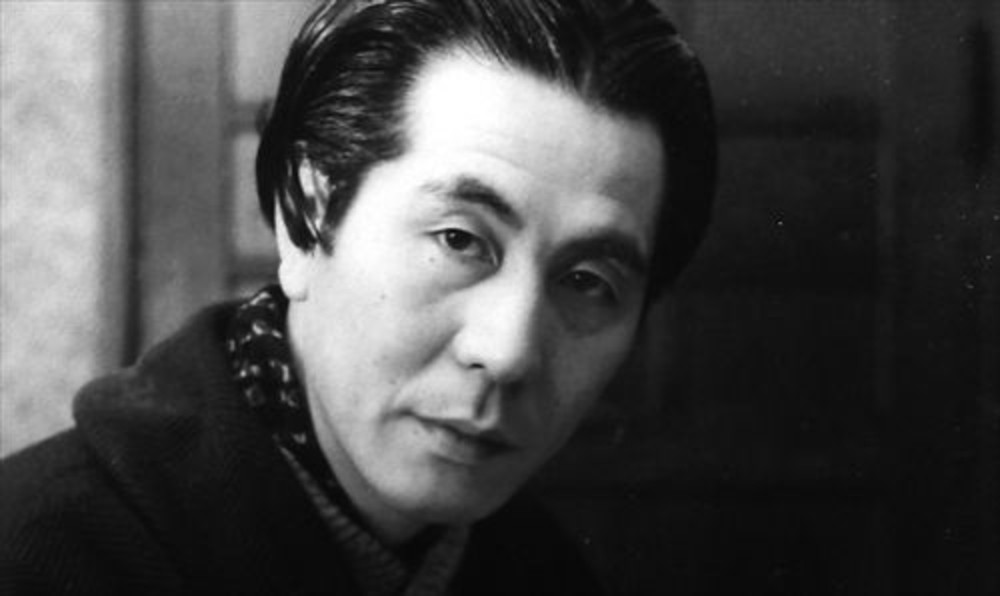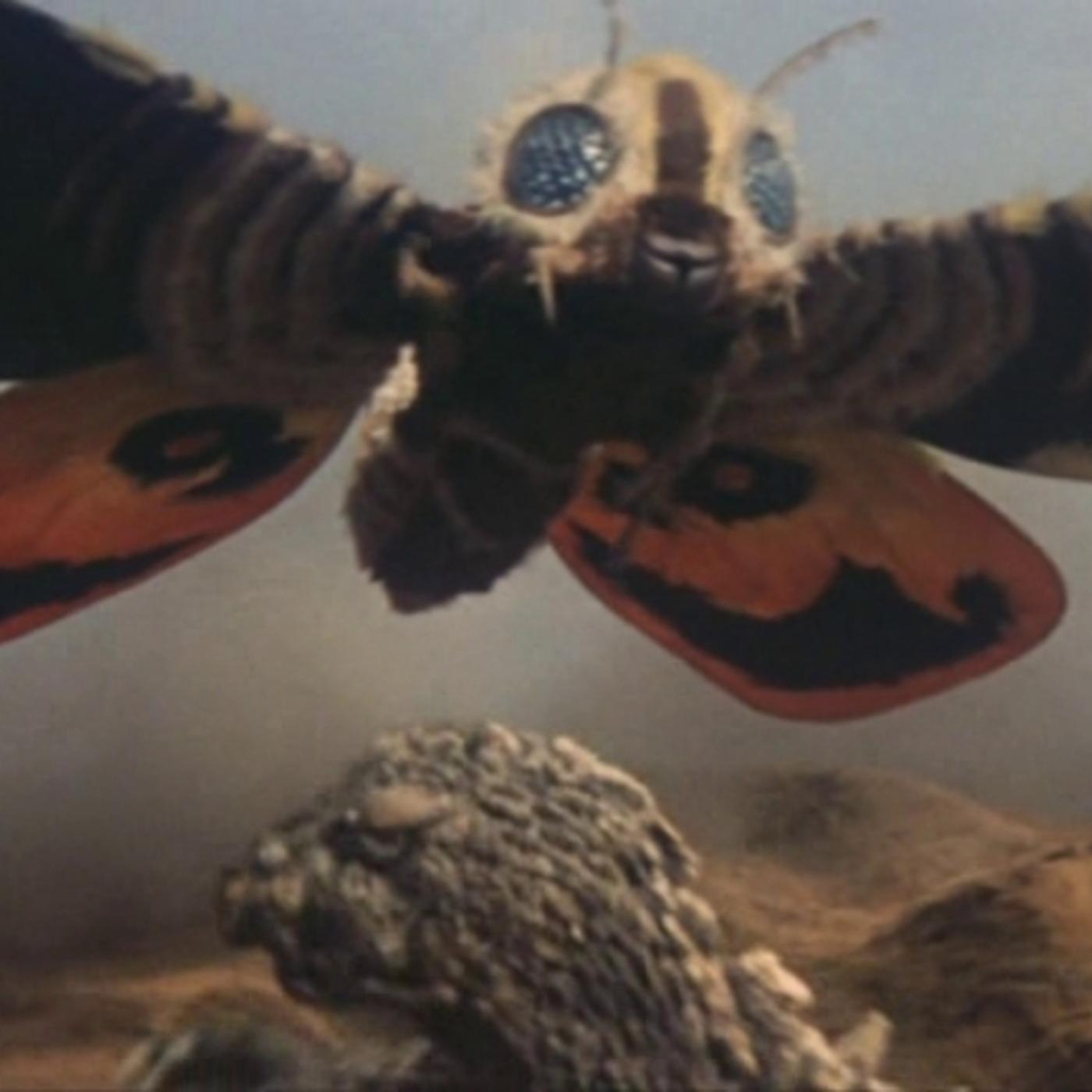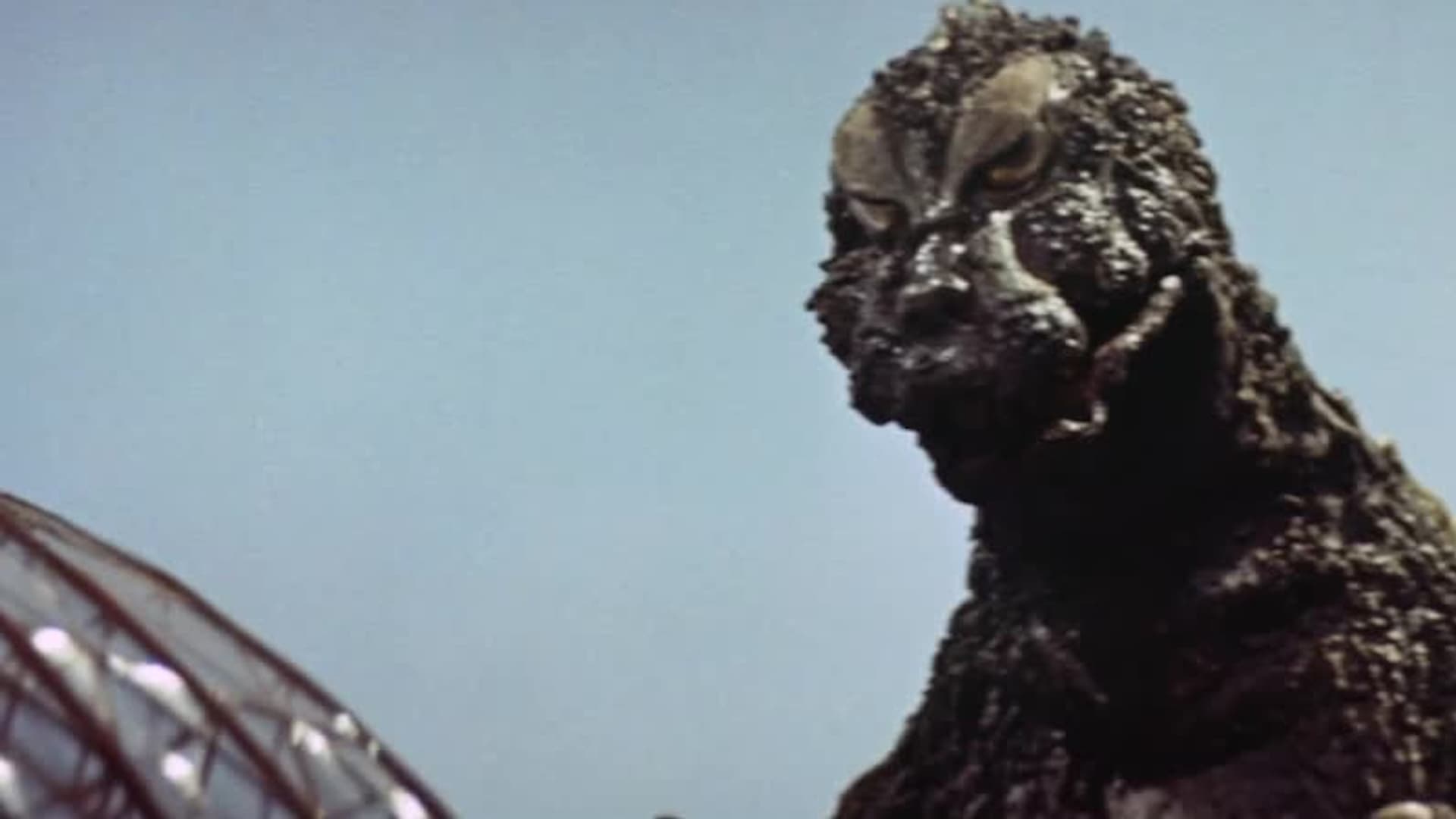

In many ways, Mothra V.S. Godzilla is everything that King Kong V.S. Godzilla wasn't. In part, a hugely successful demonstration of 60s era suitmation, a smart critique of capitalism and greed, and a superior monster mash. Even in saying that, the film does not escape the racism of its predecessor, even if it does tame it down to a significant degree. That being said, the use of the noble savage trope that started its usage in Mothra's film debut in 1961 has continued even today, thus making its usage of racist tropes far more long-lasting than the admittedly more severe usage in King Kong V.S. Godzilla. Perhaps it's the reduced severity of the trope within Mothra that has allowed it to survive the progressive age, but in either event, it is a drain on what is otherwise a fantastic Godzilla movie.
Starring Godzilla series veterans playing different characters than they had before, the film carries with it a sense that everyone involved has gotten into the groove of things. There is less fruitless experimentation, less fluff, and a much tighter narrative for the first 3 acts. Now the fourth attempt at a Godzilla movie, Mothra V.S. Godzilla seems to understand the careful balance of silly camp and genuine danger that is necessary to capture a monster mash such as it. This can be seen most clearly in Godzilla's design, which is at the same time terrifying and goofy, with soulless eyes that seem to pierce you as you watch, contrasted with a floppy lip that makes him look like a puppy dog.

This design works well for a Godzilla that once again takes on a villainous force, although one that is less about revenge-fueled destruction, and more about righteous indignation. Godzilla in this film acts not just as a force of terror for the protagonists, but as justice for the villains, as if to say that the capitalisitic greed that created the problem of the film is solved by Godzilla's massive body crushing them and their money beneath the rubble of the building that they built their house of cards upon.
It is in fact a thoughtless tail-swipe done as Godzilla is turning away that brings the human villain to his end, and in this way, the film's ideas regarding the sheer difference in power and might between humanity and Godzilla, or humanity and nature, is made clear. Indeed, it is only a symbolic representation of Mother Nature herself who even stands a chance against the rage-filled Godzilla: Mothra. In desperation at the gross failure of the military to even slow Godzilla's march through Nagoya, the human main characters go to the noble savages who worship Mothra as their Goddess for help. Here, we're introduced to the two best parts of this movie in my opinion, the Shobijin, or twin Mothra fairies, and I finally discuss a part of the Godzilla films I have yet to address: the music. Through the Shobijin, some of the best and most timeless songs of the entire Godzilla franchise are put on full display, with the beautiful voices of The Peanuts, or Emi and Yumi Itō. These at-the-time celebrity guest stars give a voice to the passion and grace of the earth itself, and I cannot express enough just how fantastic their vocals pair with the film's message about the power of earth, and the dangers of human intervention upon it. This works in tandem with the rest of the soundtrack by the master Akira Ifukube, the master composer of the greatest songs in the entire Godzilla franchise, and who is in my opinion the greatest composer of the past 200 years. To be honest, it is a crime that I haven't mentioned his work yet, despite having done the soundtracks for 3 of the 4 Godzilla films I have covered thus far, but I felt this movie, where the soundtrack is transcendent, would be the best introduction to the work of the genius that is Akira Ifukube. I feel it is necessary to now give you a taste of some of his music. For that, I've selected two of the works he made near the end of his life for the final Godzilla film of the Heisei era, and in my opinion, some of his best work.

These pieces, as with all of Ifukube's work, are an emotive power-house, capturing all the nuance, beauty, and terror of Godzilla. It seems to be that no one understood Godzilla better than Ifukube, as his music truly contains the essence of what makes Godzilla so special, and in this way, no single composer comes even close to capturing the sheer perfection of Ifukube. I've heard from some people I know in real life and who I've interacted with online that his work is dated, and couldn't be used in a modern movie, but I disagree with every fiber of my being. Ifukube's masterpieces are essential, and every Godzilla movie that lacks his touch is lesser for it. I truly wish that he was alive today to see how much the series has grown since his passing, and to know just how much his brilliant music has affected me and so many others. I don't want to dedicate this whole review entirely to Ifukube, and in fact I plan on writing a full dedication to his work later in this series, so I'll keep my words brief. Ifukube was a master of his craft, and there has not been a single person who has matched what he did time and time again for this series that I love so much.
I do not want to sully the end of this review with discussions of how the movie's effects are dated, or how the racist tropes take away what was an otherwise great movie, because I feel this film is more than that. Much like the original, Mothra V.S. Godzilla is a masterpiece, and an essential viewing for any Godzilla fan, and as such I will refer to my other reviews in criticizing the effects and racist tropes as they are no different than what was present in King Kong V.S. Godzilla. So, allow me to indulge in the film for a moment.
From the energetic and chaotic battles between Mothra and Godzilla, to the brilliant performances of the entire cast, Mothra V.S. Godzilla manages to take a perfect balance between the pure camp of the previous film, and the haunting terror of the original. At each moment of the film, you can feel the love that went into the narrative, the sets, the costumes, and acting, and the music. Everything comes together to create a movie that I believe has aged remarkably well for how old it is, and for how little money it was made with. This can be shown with the way the movie manages to handle fight scenes between a flying, somewhat fragile moth, and a giant radioactive prehistoric reptile. Despite never making direct contact with one another in the wrestling/boxing that is seen throughout most of the showa era, the scenes still manage to entertain, with Mothra truly seeming to be fighting for her life, as Godzilla seems all but unstoppable. Every success that Mothra takes in their fights, Godzilla takes two more, and in the end, he has the clear advantage, and Mothra cannot survive the unstoppable force of Godzilla. Unstoppable is truly what Godzilla feels like for the first 2 acts of the film, as if nothing on this earth could stop him. That is, except for two baby Mothra's, I suppose.
The sharp-eyed reader will likely notice my reference to "first 2 acts" repeatedly throughout this review, and that's because of the one negative that I cannot push off onto other reviews to discuss: the last act of the movie. After defeating the adult Mothra, her egg hatches revealing two twin Mothra Larvae, who then take over where their mother had left off. This is interrupted by a sudden subplot to rescue some children trapped on an island Godzilla is making his way towards, a plot point that had not been introduced until the very moment a random unnamed character declares it to be via screaming for help. Thus, the final act of an otherwise very well paced film is a sudden diversion away from the main conflict, as the newly hatched Mothra twins must defend the children from Godzilla while a boat comes in to rescue them. The film is then capped by an awkward fight in which the twins wrap Godzilla in silk, and he then falls into the water, presumably just giving up and swimming away. This is honestly a huge let down of an ending for a movie that up to that point had been just as good as the best of the Godzilla movies, and would likely rank as one of the top ever, all if not for the ending.
Despite the lackluster ending, Mothra V.S. Godzilla still succeeds as the moment that the Godzilla series finally figured out how to do a monster mash justice. Where Godzilla Raids Again was awkward and poorly aged if experimentally brilliant, and King Kong V.S. Godzilla just felt silly, Mothra V.S. Godzilla manages to pull it all together to make for a fun, haunting, and clever adventure that I consider essential viewing for all who read this.
Back